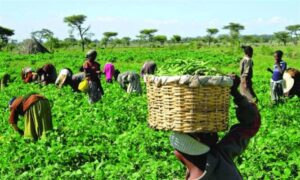BY KAYODE ADEBIYI
In a recent report, the World Health Organisation (WHO) said people in the countries with the highest life expectancy will live 33 years more than those born in the countries with the lowest life expectancy.
According to the World Report on Social Determinants of Health Equity 2025, the difference in life expectancy between the richest and the poorest countries highlights global health inequities.
WHO said in the report that preventable life expectancy gaps were worsening across social groups, cutting lives short, sometimes by decades.
“Unacceptable gaps persist in how long people can expect to live healthy lives depending on where they live, the communities they belong to, their education level, their race and ethnicity, their income and wealth, their gender and whether they have a disability.
“The social determinants of health equity–the conditions in which people are born, grow, live, work, and age, and people’s access to power, money, and resources—have a powerful influence on these avoidable and unjust health gaps.
“The available data shows that during the past two decades, the gap in life expectancy between the most and least advantaged groups within some countries has widened,” the report said.
The report also confirmed that the health and well-being of individuals depend on much more than genes and access to health care.
It said the world must address the nonmedical root causes that shape most people’s health and well-being in order to reduce what it termed “avoidable and unjust health gaps.”
Decrying the wide margin of life expectancy between rich and poor countries, WHO Director-General, Dr Tedros Ghebreyesus, said the report was an indication of global inequality.
“Our world is an unequal one; where we are born, grow, live, work and age significantly influence our health and well-being.
“This world report illustrates the importance of addressing the interlinked social determinants and provides evidence-based strategies and policy recommendations to help countries improve health outcomes for all,” he said.
Although data to conclude the trend in low- and middle-income countries was insufficient, it is not only the global inequality gap that has widened, as there are significant gaps within countries.
WHO said the report aimed to inform global, national, and local policymaking, providing a foundation for coordinated action and investment in social determinants of health equity.
The UN Office for the Coordination of Humanitarian Affairs (OCHA) said the key to overcoming deep-seated inequities was to devise measures to address income inequality, structural discrimination, conflict and climate disruptions.
“Climate change, for example, is estimated to push an additional 68–135 million people into extreme poverty over the next five years.
“Currently, 3.8 billion people worldwide are deprived of adequate social protection coverage, such as child/paid sick leave benefits, with direct and lasting impact on their health outcomes.
“High debt burdens have been crippling the capacity of governments to invest in these services, with the total value of interest payments made by the world’s 75 poorest countries increasing fourfold over the past decade,” it said.
Experts emphasise that the report reinforces the well-established understanding that social circumstances are the main drivers of health outcomes and inequities.
Prof. Michael Marmot, whose Institute of Health Equity (IHE) chaired the 2008 Commission, said WHO’s new global report showed that within-country health inequities were widening.
He said the gaps were largely due to a lack of political will to implement the longer-term policy solutions needed to improve health for everyone, proportionate to need.
“The report reinforces that most health outcomes are driven by the social circumstances of daily life, and inequities in power, money, and resources,” he said.















